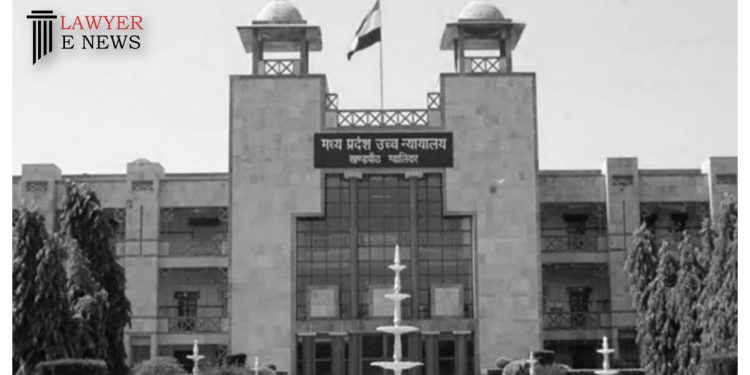-
by Admin
15 February 2026 2:16 AM



The court emphasizes the necessity of resolving disputed facts and obtaining a civil court declaration for will-based property mutations.
The High Court of Madhya Pradesh, presided over by Justice Gurpal Singh Ahluwalia, has dismissed a writ petition seeking the mutation of property based on a will. The court underscored the importance of resolving disputed facts and obtaining a declaration from a civil court to validate the will, thereby ensuring the proper transfer of property rights.
Varun Kumar Sonkar, a 25-year-old businessman from Jabalpur, filed a writ petition under Article 226 of the Constitution of India. He sought the court's intervention to have his name mutated in the revenue records for a property bequeathed to his late uncle, Dharmendra Sonkar, through a will executed by Phagulal Patel on June 28, 2012. Sonkar argued that since his uncle had died issueless, he was entitled to inherit the property based on the will. However, the petitioner’s father, Champalal Sonkar, is still alive, and no document of conveyance from Dharmendra Sonkar to the petitioner existed.
Disputed Facts:
The court highlighted two primary disputed facts:
The authenticity of the will executed by Phagulal Patel in favor of Dharmendra Sonkar.
Whether Dharmendra Sonkar died issueless.
Justice Ahluwalia noted that these disputes are substantial and require thorough examination by a competent civil court rather than a summary procedure.
Justice Ahluwalia referenced several key judgments that establish the legal framework for validating a will. He cited the Supreme Court's decisions, emphasizing that mutation of property based on a will does not confer title or ownership. Instead, such entries are meant for fiscal purposes only. The court cited the Supreme Court case of Jitendra Singh v. State of Madhya Pradesh, reinforcing that "mutation of property in revenue records neither creates nor extinguishes title to the property nor has it any presumptive value on title".
Justice Ahluwalia remarked, "The propounder of a will must prove the document in accordance with law. Sections 67 and 68 of the Evidence Act prescribe the requirements and nature of proof which must be satisfied by the party who relies on a document in a court of law." He further asserted, "The revenue authorities have no jurisdiction to decide the genuineness of a will; this can only be done by a civil court."
The court meticulously discussed the principles of evaluating the validity of a will, pointing out that the party propounding the will must demonstrate its authenticity and address any suspicious circumstances surrounding its execution. The judgment reiterated that the mere presence of a will does not automatically entitle the beneficiary to property rights without proper legal validation.
The High Court's dismissal of the petition underscores the judiciary's commitment to ensuring proper legal processes are followed in property disputes involving wills. By affirming the necessity of civil court declarations for will validation, the judgment reinforces the legal framework governing property transfers. This decision is expected to have significant implications for future cases, ensuring that property rights are not conferred based solely on revenue record entries without thorough judicial scrutiny.
Date of Decision: May 22, 2024
Varun Kumar Sonkar vs. The State of Madhya Pradesh & Others
